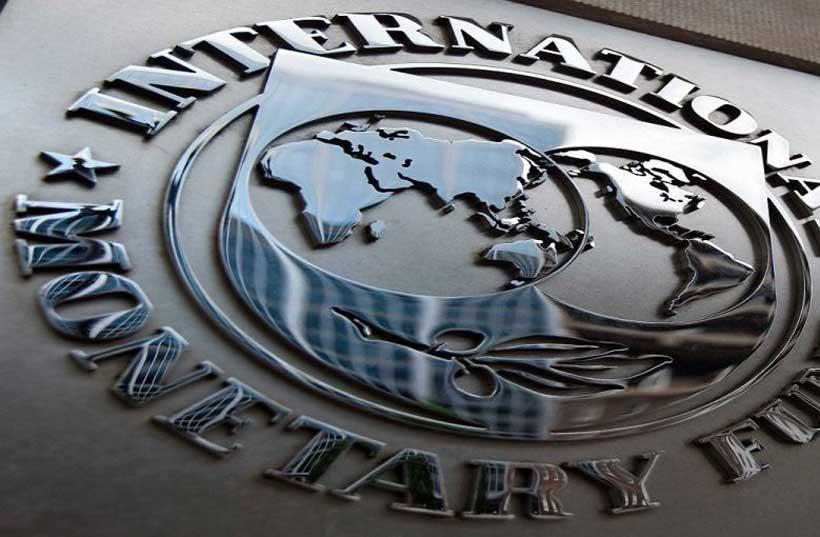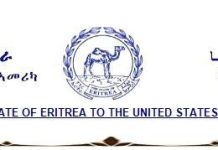By
Ikhlas Tawazun
Africa-Press – Eritrea. In the last two decades, the US financial sanction list has grown into an unwieldy diverse collection of countries, institutions, and individuals. This list does not only consist of those under the watch of the Office of Foreign Assets Control (OFAC), but also those imposed through international institutions, such as the Society for Worldwide Interbank Financial Telecommunication (SWIFT). In effect, international institutions are no longer neutral infrastructure but tools to enforce US foreign policy.
Partly in response to this, countless state-led initiatives have proliferated as alternatives to the US-based global payment system. These initiatives range from the backbone infrastructure, such as alternative interbank messaging networks and local currency settlements, to user-facing digital cross-border payment systems. This allows countries to circumvent the US-based system. Consequently, however, these systems developed alternative governance frameworks not entirely attached to existing norms.
This presents a twofold problem for the global payment system. Increasing weaponization of international institutions causes states to develop alternatives to the US-based system and disengage from international institutions. In turn, the development of alternative systems risks a governance gap where malfeasant actors can abuse the system and threaten the integrity of the financial system.
Fragmentation by Increasing Weaponization
The weaponization of international financial institutions runs against its very premise as neutral platform facilitating global exchanges. Unfortunately, this is increasingly the case. For the first time, SWIFT was used to effectively sanction Iran in 2012, disconnecting all Iranian banks from its network, including the Iranian central bank. Formally citing EU Council Decision as reason for the action, American pressure was evident, as the US Congress threatened to sanction the SWIFT Board of Governors should they do not implement this.
Unsurprisingly, SWIFT was again used to sanction Russia in the wake of its invasion of Ukraine in 2022. By then, however, Russia has developed a set of alternative payment infrastructure with SPFS, its own interbank messaging system, and Mir, its own payment network. Supported by increasing links to China and the yuan, this alternative system prevented Russia’s payment system from “going dark” under comprehensive Western financial sanctions. Many other countries have also established or are in the process of establishing their own systems at this point.
More perturbingly, however, was the decision to suspend Russian membership in the Financial Action Task Force (FATF), a global financial crime watchdog on Anti-Money Laundering and Combating Financing of Terrorism (AML/CFT). Framed not as an outright expulsion, so that Russia remains accountable to implement FATF standards, this wishful thinking simply does not hold water. Without any membership benefit, countries would not be inclined to implement FATF standards. This decision is, in effect, allowing illicit financial flows to flourish in Russia.
It is important to note that disengagement from international payment-related institutions so far has been caused almost exclusively by US and Western sanctions. No country ever voluntarily walks out of any of them. Although membership remains largely intact, the inherent risk in the current system has convinced countries to focus on developing their own alternative systems. Masked by justifications of “strategic sovereignty” or “financial security”, the development of alternatives is intended to bypass US-based regimes, especially the US dollar. By weaponizing its dominance and international institutions, the US is fragmenting the global payment system.
Divergence by Growing Governance Gap
A secondary and perhaps less visible effect is growing governance gap between these payment systems. The global payment system is de facto built on US rules. This owes the dominance of its banks, payment networks, and above all, the US dollar. Any financial institution that wishes to be internationally connected will need to adhere to the US regulations.
An example of this is Know Your Customer (KYC), a core standard in every financial service, designed to verify client identities. KYC is virtually a global practice for all Payment Service Providers (PSP), even without a global framework or local laws requiring them. KYC necessity owes to US regulations such as the Bank Secrecy Act of 1970, PATRIOT Act of 2001, and FINRA regulations. This regulatory alignment is not just passive. Through FATF, the US socializes AML/CFT to the world’s major economies and financial hubs. The US basically sets the governance standards in global payment, and this has worked largely well.
However, as alternative non-US systems emerge, the governance standards of payment systems are no longer singular. Without touching the US dollar, and therefore under no obligation to adhere to US regulations, these systems develop their own governance standards that can fall short in safeguarding the integrity of the financial system. This is even more critical considering the rapidly evolving nature of digital fraud and crimes. For instance, Indonesia’s Ministry of Communication and Informatics identified almost IDR 5.4 trillion (~US$325 million) of illicit online gambling-related transactions, a growing scourge in Asia, facilitated through e-wallet providers.
This growing gap in governance, being left as is, presented cracks in the integrity of the global payment system that malfeasant actors can take advantage of. Without serious and coordinated action to mitigate this, the financial sector will be prone to misuse, risking legitimate money to manipulation and mixing with illicit money financing illicit activities. The need to understand and reconcile multiple regulatory regimes would also increase friction and inhibit interoperability, making life difficult for everyone.
Not All Hope is Lost
Even with these developments, the calculation for countries remains firmly in favor of participating in these international institutions because the benefit of global payment facilitation is not something that they can afford to lose. The problem is then where and how could these countries cooperate, given the current set of problems. Taking the fragmentation of payment systems as a given, political problem, closing the governance gap is a problem that the world can work on.
Thankfully, world leaders have recognized this problem. The G20 Presidency of Saudi Arabia has made enhancing cross-border payment a priority in 2020. The G20 designated the Financial Stability Board (FSB), an international standard-setter, to develop a roadmap. In cooperation with the Committee on Payments and Market Infrastructures (CPMI) of the Bank for International Settlements, a roadmap was launched in October 2020.
Among the five focus areas of the roadmap is the alignment of regulatory, supervisory, and oversight frameworks. As part of this focus area, fostering KYC and consistent implementation of AML/CFT takes the center stage. The roadmap also takes on the challenge to better align increasingly multi-jurisdictional nature of cross-border payment, especially with digital payments and new data protection laws. Interaction between data frameworks will be analyzed and safe payment corridors created.
Five years on, the FSB has completed the majority of most of its action points and presented several recommendations. Perhaps most importantly, the FSB recommends to level the playing field between banks and non-bank PSP involved in cross-border payments by enhancing the consistency in the regulation and supervision in a way that is proportionate to the risks. On AML/CFT, the FSB introduced changes to Recommendation 16 on FATF standards on the information that must accompany payments throughout the payment chain with enhanced data requirements. The FSB also recommended bringing together payments, AML/CFT, and data protection experts under one umbrella to streamline and enhance cross-border data exchange.
Unfortunately, according to FSB’s own progress report, these efforts have not translated into tangible improvements for end-users at the global level. Satisfactory improvements are unlikely to be achieved in 2027 as envisioned in the roadmap.
To accelerate the implementation of these recommendations, it is useful to remember the limitations of FSB’s small technocratic team with only 40 staff in its secretariat, most of the secondment from member states. It simply cannot actualize the implementation of its recommendations on its own. Historically, the cascading of changes in financial policy has been through engagements by more capable organizations such as the IMF and the World Bank, which indeed have been involved in this initiative, but only to a limited extent.
To manifest an accelerated implementation, the IMF and World Bank will need to step up their involvement and engagements with regulatory bodies in countries around the world. They need to conduct capacity-building sessions to help and push regulatory bodies to adopt new and increasingly complex standards. This would need to be coupled with continued agenda setting at the intergovernmental level, so its progress will be discussed in the G20 FMCBG meeting annually.
On the other hand, countries will also need to carefully consider the integrity and interoperability of payment systems. Even as they develop alternative payment systems, FATF-compliant safeguards must be maintained and interoperability should be top of mind. In developing regulations, particularly pertaining to data protection and cross-border transactions, efficiency and safety must be aligned and streamlined.
A convergence of governance standards is still possible in a fragmenting world. Strategic independence should not come at the cost of integrity and interoperability of the payment system. However, such a world would require high levels of cooperation of all actors from international institutions, countries, to private players. In other words, it requires all hands on deck.
For More News And Analysis About Eritrea Follow Africa-Press







